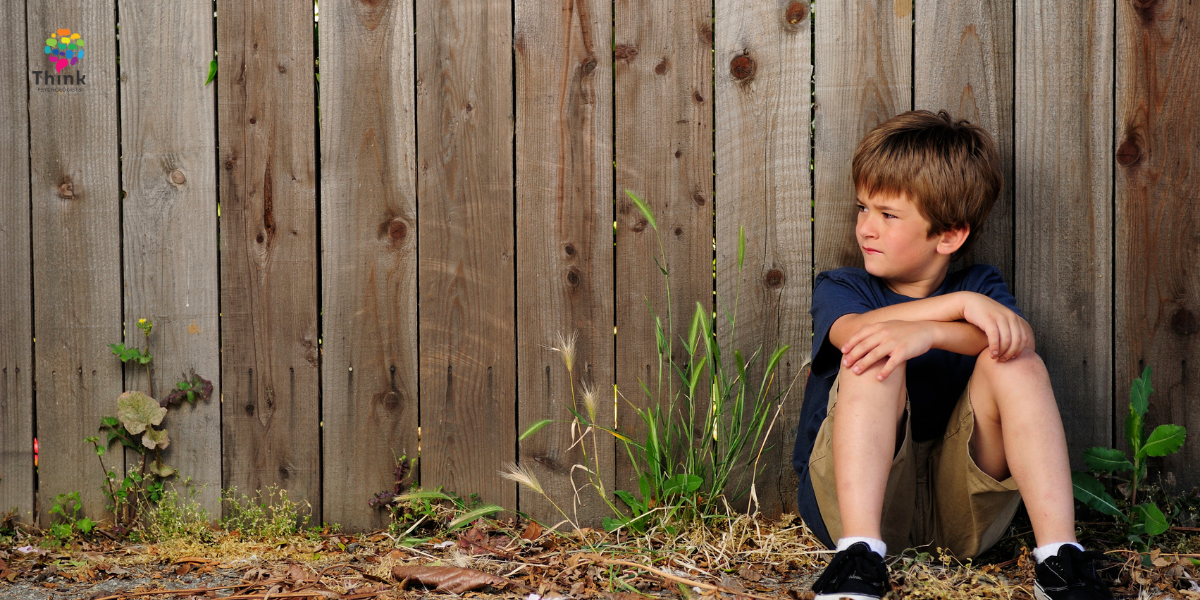Autism, PDA and RSD: Understanding the connection

When exploring neurodiversity and PDA (Pathological Demand Avoidance), you might also come across the term RSD, or Rejection Sensitive Dysphoria. The overlap can feel confusing, especially when you’re already navigating daily challenges at home or school.
Our team often hear questions about how Autism, ADHD, PDA and RSD fit together. Dr Nicole Carvill, Psychologist and Founder of Think Psychologists, shares her perspective in this guide, helping families understand what these terms mean, how they might connect, and gentle ways to support children experiencing both.
What is Rejection Sensitive Dysphoria (RSD)?
RSD is described as intense emotional pain triggered by the perception of rejection, criticism or failure. Children may respond with big feelings, withdrawal, or self-critical thoughts.
While the term is gaining attention, Nicole reminds us that it’s still evolving. “It’s important to consider each child individually when determining whether RSD is a factor to consider. While we do see these behaviours in practice, RSD is much like PDA was a few years ago, where the research behind it is still unfolding and it’s not yet a formal diagnosis,” she says.
PDA and RSD: how are they connected?
Children with PDA often live with high levels of anxiety, which can shape how they interpret social situations. Nicole explains that what’s described as RSD might be less about “sensitivity” and more about learned self-protection.
If you think about kids who’ve had a lot of social experiences where they’ve been judged or not accepted, it makes sense that they carry that forward. It’s not so much being sensitive to rejection – it’s being conditioned to expect it,” explains Nicole.
In other words, PDA can create a framework where a child is already on alert, and repeated negative interactions add to that sense of vulnerability.
What RSD can look like day to day
Both research and our clinical experience indicate that RSD doesn’t show up in the same way for every child.
Nicole describes two broad patterns she’s seen:
- Some children appear angry, defiant, or oppositional when they sense criticism.
- Others mask, appease, or become more anxious to avoid further rejection.
“For girls, it’s often more about masking and placating to fit in. The emotional cost of that is huge,” Nicole explains.
In daily life, this might look like:
- Refusing to attempt homework after making one small mistake, fearing they’ll fail if they try again.
- Becoming very upset when not chosen for a team, even in a casual game with friends.
- Having a meltdown after a sibling criticises their drawing, feeling it means they’re “not good enough.”
- Withdrawing from friendships after a small disagreement, convinced they’re no longer liked.
- Over-apologising for small things (“I’m sorry, I’m sorry, I’m sorry”) in fear of upsetting others.
- Avoiding trying new activities or hobbies because of the risk of “not being good enough.”
- Becoming distressed if a parent uses a firmer tone of voice, even if no criticism is intended.
Nicole explains that these repeated experiences can leave a lasting mark, “If that happens multiple times a day, the message they take home about themselves is significant,” she adds.
Can RSD affect anyone?
Many professionals describe seeing patterns of rejection sensitivity across a wide range of children, even when it’s not formally labelled. Research into RSD in autism and PDA is still limited, with most of what we know coming from ADHD studies or clinical observations rather than large-scale research. And while RSD is commonly linked with ADHD, it’s not limited to neurodivergent children.
“I think anyone could experience it. If you often find yourself facing criticism or a lack of acceptance, you start to question yourself. It’s not about rejecting others – it’s about feeling continuously rejected by others,” she says.
For many parents (and educators), it feels like you’re constantly firefighting, without a clear plan. If this sounds familiar, our article on navigating school avoidance might be a helpful.

Supporting a child with Autism, PDA and RSD
Nicole emphasises that strategies aren’t about “fixing” the child, but about creating safer environments and reducing stress.
She suggests:
- Acknowledge their distress is real. Validation helps children feel understood and supported.
- Avoid shaming or name-calling – even in moments of frustration.
- Focus on reducing emotional overload rather than finding the perfect phrase. “Any word could be perceived as hostile if the child is already dysregulated,” Nicole explains.
She also highlights the importance of looking at environments, not just the child:
“The bigger question is how we can understand these kids better and how our environments can support their neurotype, rather than expecting them to just adapt”, she adds.
Supporting yourself as a parent
While the focus is often on supporting the child, parents also need space to recognise their own experiences. Living with frequent rejection sensitivity can feel draining, and it’s easy to become caught in the emotional intensity.
Simple ways parents can model support include:
- Caring for yourself too. Whether that’s a walk, a cup of tea, or leaning on your support network, your regulation helps your child regulate.
- Taking a pause before responding. Showing your child that calm is possible, even when emotions are big.
- Remembering it’s not personal. Their distress is real, but it isn’t directed at you as a parent.
- Modelling calm regulation. Slow your breathing, lower your tone, or step away briefly if you need to reset.
When to seek professional support
If a child’s reactions are frequent and affecting many areas of life – sleep, friendships, siblings, school, or self-esteem – Nicole recommends consulting with a psychologist sooner rather than later.
“Ideally, you wouldn’t want to wait until it’s really significant to seek support. If you’re starting to get clues – maybe your child is often distressed, withdrawing, or struggling with sleep or friendships – then it might be time to link in with professional support. Early conversations can make things easier before patterns become harder to shift,” Nicole advises.
Why guidance matters more than Google
When worries pile up, many parents turn to Google for answers. A quick search can lead to page after page of acronyms and worst-case scenarios, which often adds to the overwhelm rather than easing it.
Nicole points out that with terms like RSD still emerging, it’s especially important to look for information from trusted organisations and clinicians. Reliable sources can help families make sense of what’s real and up to date, rather than getting lost in opinion pieces or outdated advice.
If you’re concerned about your child, it’s always worth reaching out to people who know your family and can guide you forward. That might be your GP, your child’s school wellbeing coordinator, or booking a parent consultation session with a psychologist or allied health professional.
Our online Parent Support Program can be a safe first step to talk through concerns without starting long-term therapy straight away.
Our advice for parents and carers
RSD is still an unfolding concept. It may not change the way professionals work with children, but it can give families language for what they’re seeing.
Nicole’s advice is to focus less on the label and more on the child’s lived experience. “Let’s start here. Let’s put some things in place to support your child and family, and then we’ll see where we’re at,” she says.
For parents and carers, that means you don’t need all the answers right now. What matters most is finding support, creating safe spaces, and remembering that your child’s reactions are real and valid.
Remember that you don’t have to figure it out on your own. Reaching out for guidance, through a trusted GP, school support team, or professional service, can help you navigate the path forward and help your child thrive.
Further learning
🌐 Articles
- Pathological Demand Avoidance: A Guide for Parents and Carers
- Navigating PDA and School Avoidance: How to Support Children and Families
- How low-demand language can support children with PDA (and sensitive kids too)
- Autism Awareness Centre – Low Demand Parenting
👆 Downloads
- Daily Demands Checklist Bundle: A practical download designed to help parents, educators, and professionals better understand the wide range of everyday demands children face—both obvious and hidden. The checklist highlights how demands show up across home, school, social, and transition times, offering a clearer picture of what might be contributing to a child’s overwhelm or distress.
📖 Books
- Declarative Language Handbook by Linda K. Murphy
- Low-Demand Parenting by Amanda Diekman
🎧 Webinars
- PDA Aware Preschools – coming soon!
An insightful webinar designed to help educators and parents understand and support PDA in preschool settings. Sign up to our newsletter to get access when it’s live.

Nicolette is an experienced child psychologist with experience across education, community and private settings. She specialises in the assessment and support of Autism, ADHD, learning differences and intellectual disability, and leads with empathy—guiding families and our clinical team through evidence-informed, strengths-based care.
Disclaimer:
The information provided in this blog is for general educational and informational purposes only and is not intended as a substitute for professional advice, diagnosis, or treatment. Every child and situation is unique. If you have concerns about your child’s mental health, behaviour, or wellbeing, please seek advice from our team or a qualified health professional. Engaging with this content does not replace personalised support from a healthcare professional.
